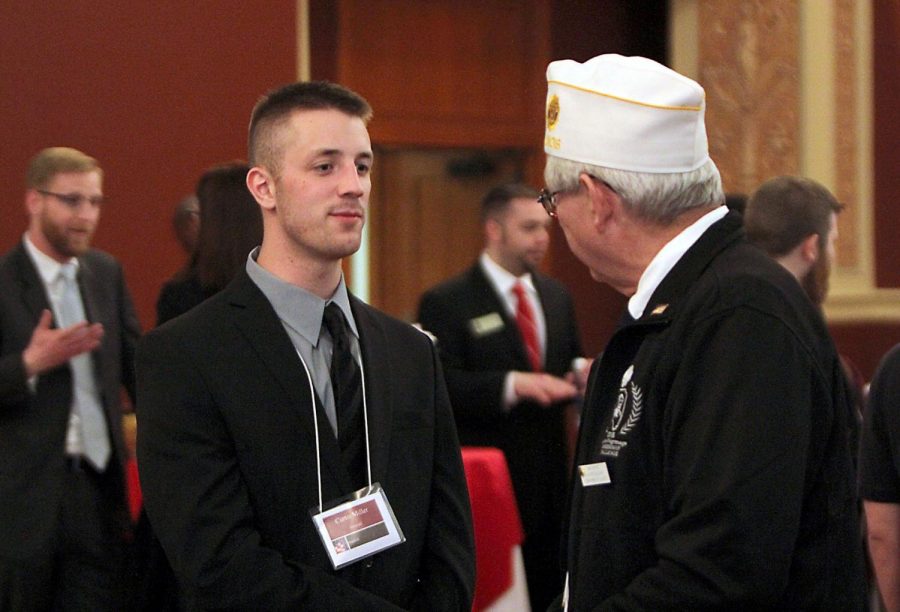Student Association seeks ways to help student veterans
March 19, 2015
A Student Association senator wants to hear from student veterans about their mental health after the SA Senate demanded NIU fill a vacant counseling position.
SA Senator Leon Kincaid began discussing ways to make counseling resources known to student veterans in August with Eric Weldy, vice president of Student Affairs and Enrollment Management. After a student and an alumnus — both military veterans — committed suicide in November and February, respectively, the SA Senate passed a Feb. 22 resolution demanding NIU fill a vacant Military Student Services counseling position, Kincaid said.
Kincaid will speak with SA Senate Speaker Dillon Domke this week about a survey that would gauge student veterans’ mental health needs. The survey, which has not yet been drafted, is the next step in preventing suicides, Kincaid said.
“Filling the counseling position isn’t the problem just yet; it’s just one piece of the puzzle,” said Kincaid, who is a four-year Air Force veteran. “I want to be able to include the opinions of other student veterans.”
The risk of committing suicide is 41 to 61 percent higher for the 4.1 million people who served in the military from 2001 to 2007 and have since left when compared to the U.S. general population, according to a study published in the February issue of Annals of Epidemiology.
A freeze on hiring across NIU has made it difficult to fill the Military Student Services counseling position since it became vacant in 2012. Weldy said he is willing to speak with student veterans about their concerns and hopes to begin talks with the SA, but he declined to comment on the likelihood of bringing the position back.
“I think we have to build a community of trust for the student vets,” Weldy said. “We really have to take the added steps to build up those relationships and let them know that we’re here for them and that we have services that we have set up that will help them be successful both in and outside of the classroom.”
NIU clinical psychologist Mark Matuszewski said filling the Military Student Services counseling position is a small fix to a complex issue. Veterans who need counseling resources are more likely to seek it elsewhere or not seek it at all because of the stigma of mental illness, among other reasons, Matuszewski said.
“There’s a degree of mistrust in the military community about mental health issues overall like, you know, part of the culture is, ‘I’m a tough guy, I take care of my business, nothing’s wrong with me,’ so you’ve got that,” Matuszewski said. “It’s pretty darn complicated. There’s a lot of factors that contribute to it.”
Matuszewski, who regularly works with student veteran organizations, said the most effective approach for getting student veterans the help they may need is for other veterans, friends and families to look out for each other.
“The battle buddy mentality’s a really important concept for most military people. You would not leave anybody behind when you were in active duty,” Matuszewski said. “It’s the same way when you’re at home as a civilian; you would not leave your buddy behind. So ask … the questions, ‘How are you doing, do you need help, can I go with you there?’”














